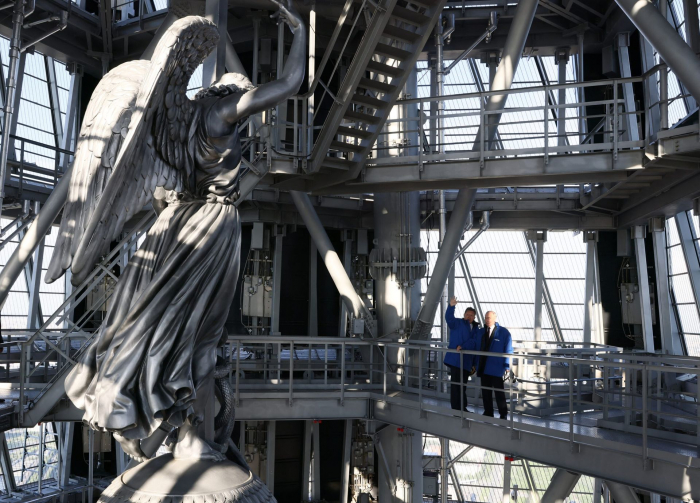European Union countries failed Friday to agree on fresh sanctions against Russia’s lucrative liquefied natural gas sector, according to six EU diplomats, with Germany torpedoing a deal on the eve of an international peace conference on Ukraine on Saturday.
The crux of the package was to ban countries from re-exporting Russian LNG from EU ports and financing planned Arctic and Baltic LNG terminals.
“Once upon a time, it was said that we should always blame … Hungary — and now it’s Germany,” said one diplomat familiar with discussions on the package, referring to Hungary’s habit of blocking earlier packages of sanctions.
Belgium — which currently chairs EU country negotiations — was forced to split talks on the package into two separate discussions amid German opposition to new sanctions against Belarus.
The latest German blockage came as G7 leaders held summit talks in Italy, joined by top EU officials. They were expected to issue a strong statement on trade with China that would also criticize Beijing for providing so-called dual-use equipment that aids Russia’s war of aggression against Ukraine.
The sanctions on the table were to have been a 14th package backed by EU member countries since Russian President Vladimir Putin ordered the full-scale invasion of Ukraine in February 2022.
Berlin was worried about broadening a measure that would force EU companies to ensure their customers cannot then sell sanctioned goods on to Moscow.
Previously, the so-called no-Russia clause had only applied to firearms, battlefield items and dual-use goods — which have both a military and civilian application. Germany worried its small businesses would suffer if this was expanded to more civilian products, like chemicals, or machinery for metalworking.
The European Commission is negotiating with the German chancellery in order to convince Berlin to lift its veto, according to one of the European diplomats, who like the others was granted anonymity to discuss the closed-door talks.
The holdup comes as a result of a rift in Social Democrat Chancellor Olaf Scholz’s three-party, center-left coalition. The other two parties are the Greens and the liberal Free Democrats.
Until Friday afternoon, German Foreign Minister Annalena Baerbock was still unable to say whether Berlin would support the package. At a press conference, Baerbock openly called for more sanctions on Belarus.
“We must take stronger action against the circumvention of sanctions that we have seen in recent months,” said Baerbock, whose Greens support stronger sanctions. “And that applies above all to Belarus.”
One official from Germany’s foreign ministry, granted anonymity to speak candidly, expressed concern that a failure to approve new sanctions would damage Germany’s attempts to win back European trust after spending years defending its Russia-friendly policies.
Meanwhile, Berlin had also stood in the way of closing a loophole that would allow high-end goods, including luxury cars, to transit from Belarus to Russia, forcing Belgium to launch separate talks in a bid to accelerate a deal.
More about:
















































